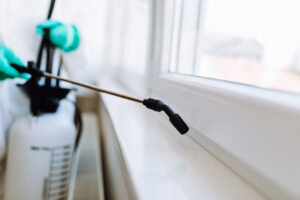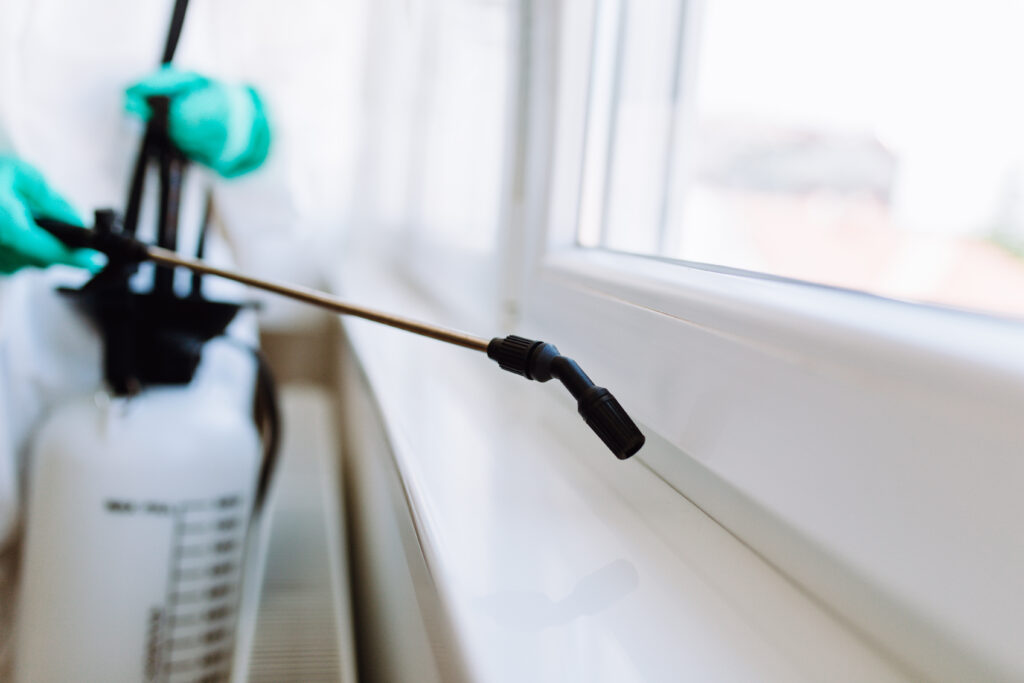
*Updated October 15th, 2025
Your home is your sanctuary—a place where you and your family should feel safe, comfortable, and secure. You work hard to maintain it, from keeping things clean to handling repairs and upgrades. But there’s one often-overlooked threat that can quietly creep in and cause major problems: pests.
From ants, cockroaches, and termites to rodents and mosquitoes, these unwelcome guests can do more than just gross you out—they can damage your home, contaminate food, and even pose serious risks to public health. Left unchecked, a small pest problem can quickly turn into a full-blown infestation, leading to costly damage and potential health risks for your family.
That’s why regular pest control isn’t just an option—it’s a necessity. In this article, we’ll dive into the importance of pest control, how effective pest control helps protect your home and health, and the best ways to prevent pests from becoming a problem in the first place.
Why Pest Control Is Important
Many homeowners don’t think about pest control until they see a problem—whether it’s ants trailing across the kitchen counter, a spider lurking in the corner, or worse, a rodent scurrying across the floor. But by the time pests become noticeable, they’ve often already caused property damage, spread bacteria, or made themselves comfortable in hidden spaces.
The truth is, prevention is key to pest management. Routine pest control helps stop infestations before they start, protecting not just your home but also your health, belongings, and peace of mind. Let’s explore the top reasons why pest control should be part of your ongoing home maintenance plan.
1. Protecting Your Home’s Infrastructure
One of the biggest reasons to invest in pest control is to safeguard your home’s structure. Pests such as termites and carpenter ants can cause structural damage by eating through wood and weakening support beams. These small but destructive insects can go unnoticed for months, leading to thousands of dollars in repairs.
Rodents and insects can also cause significant damage. Mice and rats chew through wires, insulation, and plumbing, which can cause fires or leaks. By employing preventive pest control measures, homeowners can prevent property damage, protect their investment, and avoid unnecessary expenses down the road.
2. Safeguarding Public Health and Your Family’s Well-Being
Pests pose more than just annoyance—they are a serious public health concern. Many common pests carry diseases and allergens that affect humans. Cockroaches, for example, can trigger asthma and allergies and also contaminate food with bacteria such as Salmonella and E. coli.
Mosquitoes and ticks can transmit diseases like West Nile virus, Zika virus, and Lyme disease, while rodents may spread hantavirus through droppings or urine. By implementing effective pest control solutions, you help minimize these health risks and keep your family healthy and safe.
3. Preserving Your Belongings
Pests aren’t just after your food—they’re after your belongings too. Silverfish, booklice, and moths can eat through clothing, upholstery, books, and important papers. Termites can cause significant damage to furniture, flooring, and even artwork.
By developing a pest control plan, homeowners can protect their belongings from pests that cause costly damage and maintain a pest-free environment.
4. Preventing Infestations Before They Spread
A few pests can turn into a full-blown infestation faster than you think. Many pests reproduce rapidly—roaches, ants, and rodents can multiply in hidden corners within weeks. Professional pest control inspections help detect early signs and stop infestations before they spread.
Pest control professionals use integrated pest management (IPM) techniques to identify entry points, reduce food sources, and keep pests at bay. By taking proactive steps, you can prevent infestations and maintain a clean, pest-free home.
5. Protecting Your Pets from Pests
Your furry friends are just as vulnerable as you are. Fleas, ticks, and mites can make life miserable for pets and spread diseases like Lyme disease or tapeworms. Some rodents and insects can even bring parasites into your home.
Regular pest control helps prevent pests from entering and protects your pets from these hidden dangers—keeping them happy, healthy, and comfortable.
6. Reducing Allergens and Improving Indoor Air Quality
Many pests worsen indoor air quality. Cockroach allergens, rodent droppings, and dust mites all contribute to respiratory problems. Controlling these types of pests reduces allergens and improves air quality, which is essential for families with children, asthma, or allergy sufferers.
By maintaining cleanliness and investing in pest control treatments, you create a safer indoor environment and reduce exposure to potential health risks.
7. Saving Money on Repairs
Neglecting pest control can lead to costly damage that homeowners’ insurance won’t cover. Pests can cause significant damage—from termites destroying framing to rodents that chew through wires. A simple pest control program costs far less than repairing damage to property after an infestation.
Investing in professional pest control services provides peace of mind, protects your home, and ultimately saves you money.
8. Why Professional Pest Control Is a Good Investment
DIY traps and sprays may seem convenient, but a professional pest control company offers long-term pest control solutions that actually work. Experts understand different types of pests, how to identify nesting sites, and which pest control methods are most effective.
A licensed pest control professional can develop a pest control plan tailored to your home’s needs, helping to control pests, prevent infestations, and reduce exposure to harmful chemicals.
Final Thoughts
In conclusion, pest control plays a vital role in protecting your home, health, and well-being. Beyond just eliminating common home invaders, effective pest management is essential for preventing property damage, reducing health risks, and maintaining a safe and comfortable living space.
By working with a professional pest control provider and maintaining regular pest control treatments, you can prevent an infestation, keep pests out, and enjoy the long-term benefits of a pest-free home.
Remember, pest control is important not only for cleanliness but also for public health and peace of mind—making it one of the smartest investments any homeowner can make.
Additional Home Improvement Resources
- How to Prevent Pest Infestations in Your Home: A Complete Guide
- The ROI of Common Home Improvement Projects
- Top Red Flags to Look for When Buying a House

Anna has over six years of experience in the home services and journalism industries and serves as the Content Manager at MyHomePros.com, specializing in making complex home improvement topics like HVAC, roofing, and plumbing accessible to all. With a bachelor’s degree in journalism from Auburn University, she excels in crafting localized, comprehensive guides that cater to homeowners’ unique needs. Living on both coasts of the United States has equipped her with a distinctive perspective, fueling her passion for turning any house into a cherished home through informed, personalized decision-making.
Connect with top-rated local contractors who can help you with siding, roofing, HVAC, windows, and more. Get free quotes from verified professionals in your area today.







